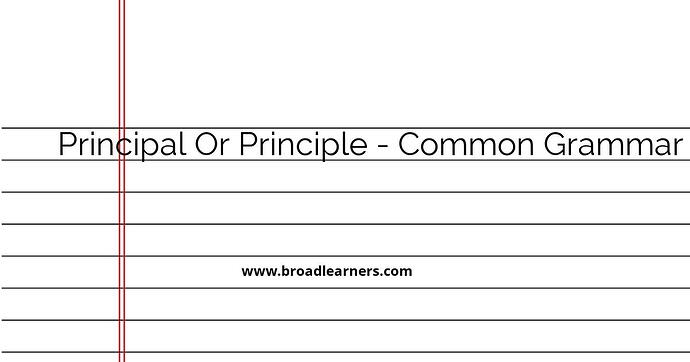'Principal' and 'principle' are commonly confused words in English grammar. Understanding the difference between 'principal' and 'principle' is important to use them correctly in written and spoken English.
'Principal' is a noun that has multiple meanings. It can refer to the head of a school, the main sum of money in an investment, or the most important person or thing in a group.
'Principle' is also a noun that refers to a fundamental truth or belief, a moral rule or code of conduct, or a basic concept or law of a particular field.
Let's take a closer look at the meanings and usage of 'principal' and 'principle'.
| 'Principal' | 'Principle' |
|---|---|
| The word 'principal' is used to refer to the head of a school or an organization. | The word 'principle' is used to refer to a fundamental truth or belief. |
|
|
To remember the difference between 'principal' and 'principle', it can be helpful to remember that 'principal' has the word 'pal' in it, which can remind you of a person or a head of an organization. On the other hand, 'principle' has the letters 'i' and 'e' close together, which can remind you of a fundamental belief or truth.
Here are some examples of correct usage:
- The principal of the company made an important announcement.
- I believe in the principle of always being kind to others.
- The principal amount of the loan needs to be repaid.
- She follows the principles of sustainable living.
Remembering the correct usage of 'principal' and 'principle' will improve your grammar and communication skills.
